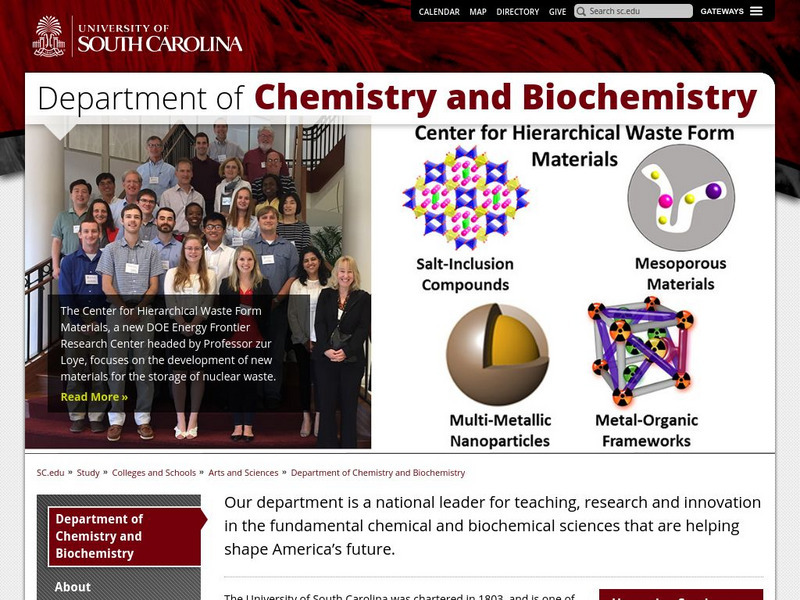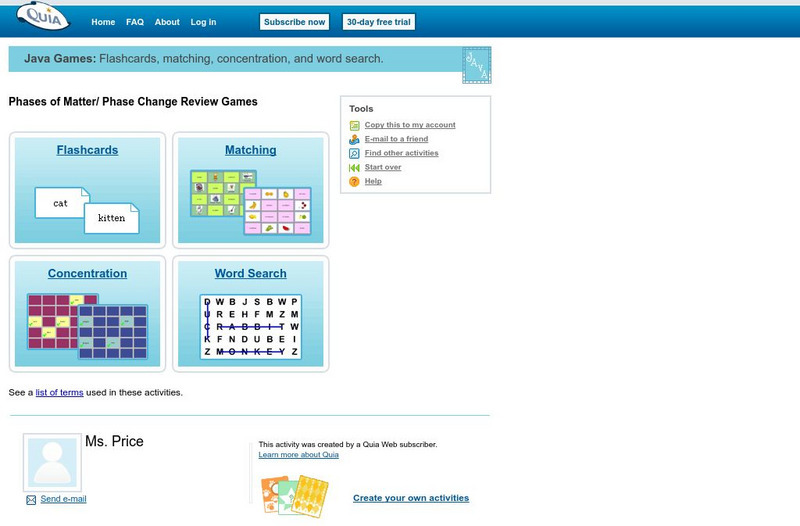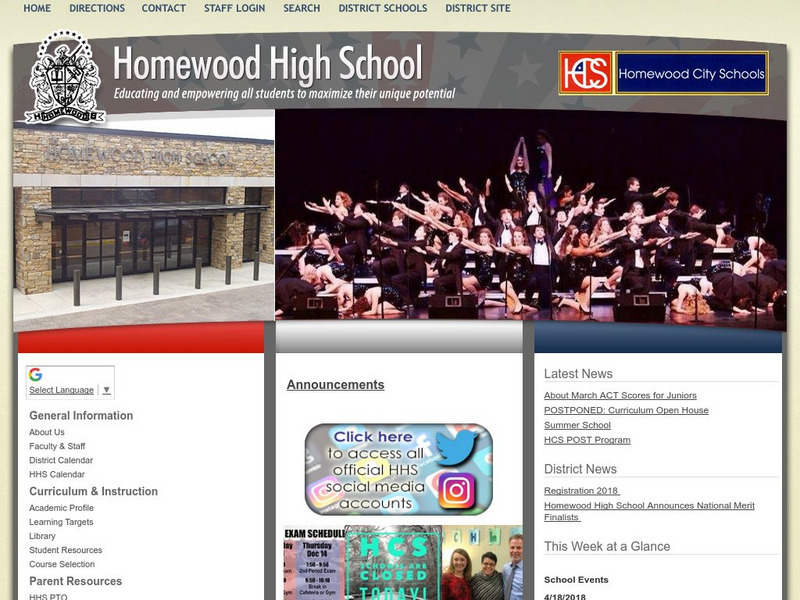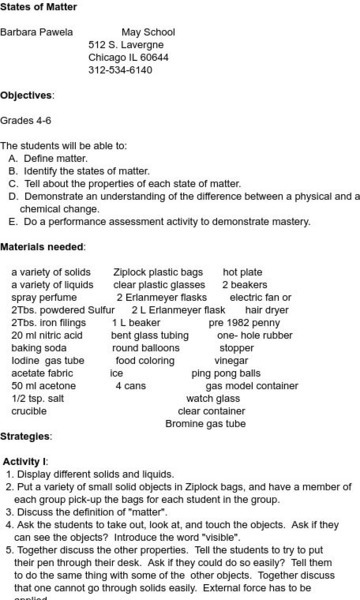PBS
Pbs Teachers: Bottle Fountain Experiment
Demonstrate how heating expands air molecules by constructing a bottle fountain powered by air pressure.
PBS
Pbs Teachers: Hot Air Balloon Experiment
Explore how heat affects the density of air by building and flying a hot air balloon using large plastic bags and the hot air from an electric hairdryer.
Michael Blaber, PhD
Florida State University: Gases: Ideal Gas Equation
The ideal gas law is derived from the empirical gas laws. The ideal gas law equation of state is listed and discussed. The universal gas constant is explained and its value is listed in five different sets of units. Standard temperature...
Other
South Carolina University: Effusion and Diffusion
Graphic from a slide show shows the concept of effusion nicely. Definitions included.
Quia
Quia: Phases of Matter
Four activities for reviewing vocabulary and definitions related to changes in states of matter.
University of Nebraska
Do Chem: Graham's Law
A lab setup, fairly simple, to illustrate Graham's Law. Check it out!
Other
Colts Neck Township Schools: Hands on Technology: Solids, Liquids, and Gases
Printable classroom-ready worksheets for a series of simple-to-implement experiments about the states of matter.
Educaplus (Jesús Peñas Cano)
Educaplus: Ley De Los Gases [In Spanish]
Do you know the law of gases? Test your knowledge with this interactive activity.
Channel 4 Learning
Science Essentials: Gases Around Us
Learn about gases, their existence in our lives, and the other states of matter. Educational extras include a glossary, some do-at-home activities, a quiz, and answers to frequently asked questions. A teacher corner also exists with...
Other
Homewood City Schools: Classification of Matter
This Homewood City Schools site has an outline form and contains lots of information about the classification and composition of matter. Some of the topics covered are matter and temperature, changes in state, composition of matter, and...
Discovery Education
Discovery Education: Volcano Lesson Plan
Use this site to understand how volcanoes work.
Sophia Learning
Sophia: The Biosphere: Lesson 2
This lesson will discuss the importance of the biosphere (the global ecosystem) to living things. It is 2 of 3 in the series titled "The Biosphere."
Sophia Learning
Sophia: The Biosphere: Lesson 3
This lesson will discuss the importance of the biosphere (the global ecosystem) to living things. It is 3 of 3 in the series titled "The Biosphere."
Sophia Learning
Sophia: The Biosphere: Lesson 1
This lesson will discuss the importance of the biosphere (the global ecosystem) to living things. It is 1 of 3 in the series titled "The Biosphere."
Ducksters
Ducksters: Kids Science: Melting and Boiling
Kid's learn about the science of melting and boiling. How matter changes state from solids to liquids to gases.
Educaplus (Jesús Peñas Cano)
Educaplus: Ley De Boyle in Spanish]
Observe the law of gases with this interactive exercise.
Other
Teaching Ideas for Primary Teachers: Science Ideas
A great resource to discover fun new activities to use in your classroom. Activities are age-appropriate, and span several science topics.
ClassFlow
Class Flow: States of Matter Venn Diagram
[Free Registration/Login Required] States of Matter: Venn Diagram for Solids, Liquids, and Gases.
ClassFlow
Class Flow: Gases Around Us
[Free Registration/Login Required] Through this unit children learn that gases are materials and can be distinguished from solids and liquids by their properties. They also learn about the uses of some important gases and where gases can...
ClassFlow
Class Flow: Matter
[Free Registration/Login Required] This flipcharts explains the basics of matter. Opportunities for student involvement include measuring solids, identifying matter, and a sorting activity.
Chem4kids
Chem4 Kids: Looking for a Gas
This overview of gases explores what a gas is and how matter becomes a gas.
Purdue University
General Chemistry Topic Review/heat
Heat is defined and explained; the concept of heat is related to the kinetic motion of particles and to temperature. Heat capacity and specific heat are explained. Sensible heat is compared to latent heat; reference is made to the heat...
Science and Mathematics Initiative for Learning Enhancement (SMILE)
Smile: States of Matter
A comprehensive lesson plan site that contains a number of activities to aid in teaching about the states and properties of matter and the difference between a physical and chemical change.










![Educaplus: Ley De Los Gases [In Spanish] Activity Educaplus: Ley De Los Gases [In Spanish] Activity](https://content.lessonplanet.com/knovation/original/120236-7a1b0469b649bbd2fdce3c3b71e4b26c.jpg?1661810233)






![Educaplus: Ley De Boyle in Spanish] Activity Educaplus: Ley De Boyle in Spanish] Activity](https://content.lessonplanet.com/knovation/original/180046-01dca5d3564f65009343af77651460ab.jpg?1661810972)





